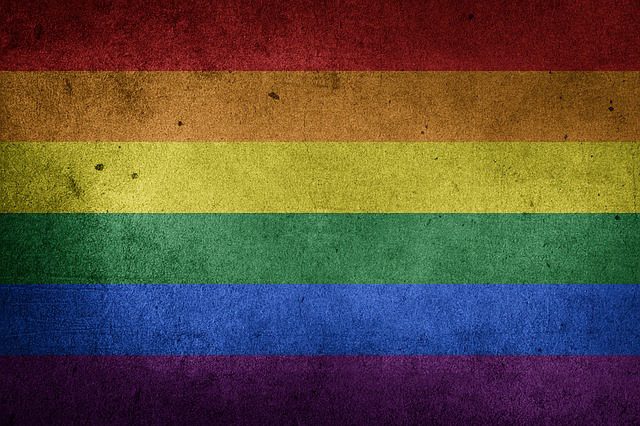
In this blog I’ll be answering an honest question from someone online who asked me:
“Do you believe effeminate homosexuals will inherit the kingdom?”
“Know ye not that the unrighteous shall not inherit the kingdom of God? Be not deceived: neither fornicators, nor idolaters, nor adulterers, nor effeminate, nor abusers of themselves with mankind…” 1 Corinthians 6:9 (KJV)
Answer: This is a great question, but the answer isn’t a simple “Yes” or “No” since you’ve made so many assumptions in asking the question the way you have here.
First, you’ve correctly quoted the KJV here which reflects the more accurate translation of the terms “malakoi” and “arsenokoitai”, neither of which should be rendered as “Homosexual” as most modern English Bibles have them.
Secondly, the term “arsenokoitai” is most likely a reference to men who sexually abuse young boys, which is paedophilia, not homosexuality.
David Bentley Hart, in his new translation of the New Testament says this about the meaning of the word “arsenokoitai” as used by Paul [and later translated as “homosexual” in our English Bibles around 1946]:
“Precisely what an arsenokoitai is has long been a matter of speculation and argument. Literally, it means a man who “beds” – that is “couples with” – “males”. But there is no evidence of its use before Paul’s text. There is one known instance in the sixth century AD of penance being prescribed for a man who commits “arsenokoitai” upon his wife (sodomy, presumably), but that does not tell us with certainty how the word was used in the first century (if indeed it was used by anyone before Paul). It would not mean “homosexual” in the modern sense of a person of a specific erotic disposition, for the simple reason that the ancient world possessed no comparable concept of a specifically homoerotic sexual identity; it would refer to a particular sexual behavior, but we cannot say exactly which one. The Clementine Vulgate interprets the word as referring to users of male concubines; Luther’s German Bible interprets it as referring to paedophiles,; and a great many version of the New Testament interpret it as meaning “sodomites.” My guess as the proper connotation of the word is based simply upon the reality that in the first century the most common and readily available form of male homoerotic sexual activity was a master’s or patron’s exploitation of young male slaves.” [notes on 1 Cor. 6:9]
Third, the term “malakoi” as you point out in your question, refers to men who are “effeminate”. In other words, straight men who appear or act “girly”. The term throughout all texts from this time period [and long before and after as well] always is used to shame a straight male for behaving, or appearing as a woman. It is never used to describe a gay male. Never. [See more on this topic here]
In other words, in that culture, if you were to shave your beard, Paul and others would have called you “malakoi”. So, your question would better be phrased: “Keith, do you believe that men with long hair or a clean-shaven face will inherit the Kingdom of God?” and I would say, “Of course!”
So, why does Paul seem to think that a man without a beard, or with a clean shave will not inherit the Kingdom? For the same reason that Paul demands that women in Corinth in the First Century cover their heads when they pray, or that they not cut their hair short, etc. Because to do so, in his own words “goes against nature” or is “unnatural.” [See 1 Cor. 11:14-15]
It’s was a cultural conviction, not a theological one.
In the same way that you and I don’t greet one another with a holy kiss – something Paul commands us to do in his epistles at least 4 times – we do not need to regard men who shave their beards or have long hair [malakoi] as being in sin – Why? Because we recognize that these are cultural prohibitions, not universally authoritative commands for everyone, everywhere.
Also: Please note that the very next verse after the one you quoted does actually suggest that Paul himself DID believe that one could enter the Kingdom of God if they were guilty of those “unrighteous” deeds, because he notes that “such were some of you” and that they “were washed, and sanctified and justified in the name of the Lord Jesus Christ, and by the Spirit of our God.”
So, in other words: There were people in the Corinthian church who were “malakoi” [effeminate, clean-shaven, etc.] and yet were loved and accepted by Christ, and by the ekklesia there.
Now, I don’t mean to suggest that Paul would have been A-Ok with same-sex attraction, or gay marriage as we see it today. But not because of anything theologically-motivated as much as it would be culturally-informed by Paul’s first-century framework.
Honestly, I don’t see Paul as an infallible or inerrant prophet. I see Paul as a person who, like you and I, encountered Christ and experienced a transformation in his life; someone who heard from God as an Apostle and did his best to communicate his experience of Christ to everyone else around him.
But your experience of Christ, and my experience of Christ, is no less valuable and authoritative as Paul’s or anyone else.
We all have the mind of Christ. We all have an anointing from Christ that teaches us and leads us into all Truth. We can all hear the voice of the Good Shepherd if we are His sheep. [And the Scriptures support each and every one of these statements].
So, it’s less important for me to know what Paul thought about something nearly 2,000 years ago, as it is to know what the Holy Spirit says about it right now.
As long as we are constricted by what God was doing or saying 2,000 years ago, I’m afraid we might miss what God wants to do here and now in 2018.
Remember: “The word of God [Christ] is living, and active…”, and God is not bound in any book, or confined to any culture.
Christ abides in us, today. Let’s allow Christ to make all things new in us and through us. The old has gone and the new is here.
We can’t be transformed by the renewal of our minds if we never consider anything outside the status quo.
At least, that’s what I think. Your mileage may vary.
**
Keith Giles new book “Jesus Unbound: Liberating the Word of God from the Bible”, is available now on Amazon and features a Foreword by author Brian Zahnd.
He is also the author of the Amazon best-seller, “Jesus Untangled: Crucifying Our Politics To Pledge Allegiance To The Lamb”.
Keith also co-hosts the Heretic Happy Hour Podcast on iTunes and Podbean. He and his wife live in Orange, CA with their two sons.
JOIN ME IN BIRMINGHAM, ALABAMA: Sept. 15 at “Proactive Love: How Loving Our Enemies Changes Everything”. Register HERE>
BONUS: Unlock exclusive content including blog articles, short stories, music, podcasts, videos and more on my Patreon page.













